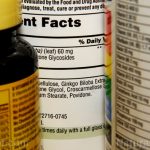
Natural and effective cleaning supplies you can use to safely disinfect your home
Friday, June 02, 2023 by Olivia Cook
http://www.naturalnewsingredients.com/2023-06-02-natural-cleaning-supplies-safely-disinfect-your-home.html
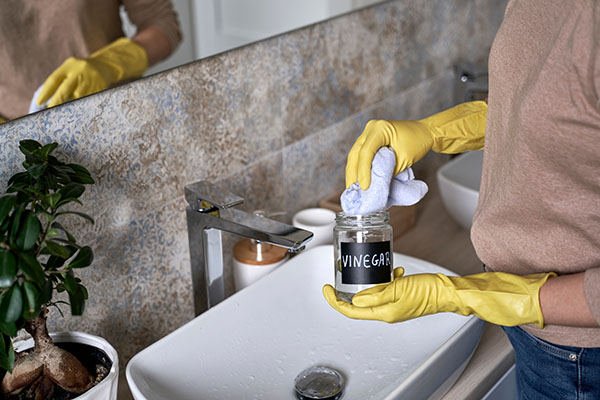
Keep your home clean with these effective natural disinfectants that you can use on hard, inanimate objects and surfaces in your home. These common supplies can also destroy or irreversibly inactivate and prevent the growth of disease-carrying microorganisms.
Alcohol
A 70 percent isopropyl alcohol is the most effective at killing pathogens – far better at killing bacteria and other viruses than 99 percent isopropyl alcohol.
Rubbing alcohol, just like hand sanitizer, kills the germs on your hands. Alcohol immediately kills germs on contact and disinfects surfaces for hours afterward. But you shouldn’t consider cleaning your entire home using rubbing alcohol, because alcohol can evaporate off surfaces too quickly to actually neutralize the germs on that surface.
Use alcohol to disinfect smaller items with non-porous surfaces, like house keys or even the surface of a toilet handle, and they can often be kept wet for long enough by reapplying rubbing alcohol, it would be much harder to do with a broader surface, let alone the whole house.
Borax
It is a natural mineral taken straight from the ground and is used in many household cleaner recipes. Similar to baking soda, this multi-dimensional cleaner starts working when combined with water molecules. Borax sprays act most efficiently in the bathroom or rooms that have a lot of moisture.
Both baking soda and borax are effective disinfectants because they are alkaline and abrasive. However, borax has a higher PH than baking soda, making it a slightly harsher, but arguably more effective cleaning, disinfecting (inhibiting bacteria, fungi, mold and killing ants) and whitening agent.
Castile soap
Quick to lather, a drop of Castile soap is all that’s needed to get bathtubs, dishes or just about any surface squeaky clean. The soap generally isn’t antibacterial on its own, so you may want to add tea tree essential oil to make your own natural bacteria-fighting cleanser. (Related: Recipes for DIY cleaning products that can help you clean better and save money.)
Essential oils
A wide array of essential oils, including eucalyptus, lemongrass, orange and peppermint oils, were found effective against 22 bacterial strains as indicated in a comparative study published in the journal Microbios.
For your cleaning needs, a few multi-purpose, antibacterial and antimicrobial favorites that can get you started on your natural cleaning journey include cinnamon, eucalyptus (odor eliminator) lavender (perfect air and linen freshener), lemon (the all-around favorite), lemongrass, oregano, Palmarosa, peppermint, pine (the natural replacement for pine sol), tea tree (best in the bathroom), thyme and wild orange (great at cutting grease) oils.
Lemon
The citric acid in lemons works wonderfully on alkaline stains, like soap scum found in bathrooms and kitchens. You can use it to clean and make old copper pans and pots and other oxidized metals sparkle; and clean and remove odors from your microwave.
Lemons can also be used to sanitize hard and non-porous surfaces, including little nicks on pizza stones and plastic and wooden cutting boards and utensils. This fruit also works to reduce bacteria on hard surfaces, though it’s less effective than vinegar and commercial cleaners. It certainly wins in the scent department, though.
Salt
Salt is still used for disinfection today – killing some types of bacteria effectively by sucking water out of them. It is also preferred for cleaning infection-prone areas, such as cuts, burns, food, objects and wounds. It should be noted that salt is only a temporary measure, when it comes to wound infection.
Salt is super versatile and has an effective way of scouring off dirt. It also boosts the cleaning, disinfecting and sanitizing effects of other ingredients, such as baking soda, lemon and vinegar when combined together.
Steam
The simple combination of water and heat makes for the ultimate economical and chemical-free disinfectant – which is why a steam mop can be a powerful cleaning tool. When heated to at least 200 degrees Fahrenheit, steam kills bacteria, dust mites, germs and other pathogens, dissolves grease and oil and cleanses thoroughly.
A study published in the journal GMS Hygiene and Infection Control found that steam technology has an advantage over a two-step method of cleaning with water and detergent and disinfecting with hypochlorite using microfiber cloth for environmental control of multi-drug resistant organisms, such as Acinetobacter baumannii, Enterococcus faecalis, Pseudomonas aeruginosa and Staphylococcus aureus in an intensive care unit of a tertiary referral hospital.
Vodka
Because most vodka is 80-proof, or 40 percent alcohol by volume, it can be used as a disinfectant to remove mold and mildew.
Vodka removes odors from clothing, mattresses and even shoes. It also removes stains and shines fixtures, but without the lingering sour odor.
For the most antibacterial power, look for 100-proof vodka and let it sit for a few minutes so the alcohol can do its job.
White vinegar
White vinegar, also known as acetic acid, is a “miracle power cleaner” when diluted with water. It easily cuts through grease and removes mildew, odors, stains and wax buildup.
Thanks to its high acidity, white vinegar reduces common surface germs, like Salmonella and E. coli – making it a safe alternative to bleach and other commercial household disinfectants, albeit not nearly as effective at killing bacteria and viruses.
Vinegar will work for those who value a food-safe cleaning method and want to rid their homes of harmful chemicals.
Visit Homesteading.news for more tips on how to keep your home clean and chemical-free.
Watch this video about DIY natural cleaning products.
This video is from the Daily Videos channel on Brighteon.com.
More related stories:
Protect your home from coronavirus and other pathogens by making homemade disinfectants.
These Ayurvedic herbs are effective disinfectants and fumigants.
4 Best essential oils for cleaning and disinfecting in the time of COVID-19.
Researchers evaluate the efficiency of natural products for disinfecting surfaces.
Sources include:
Tagged Under: Tags: alcohol, antimicrobial, antiseptic, borax, essential oils, green living, homesteading, natural disinfectants, natural ingredients, off grid, preparedness, prepper, prepping, steam, survival, tips, vinegar
RECENT ARTICLES

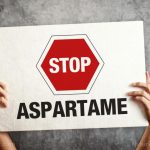
Aspartame declared a POSSIBLE CARCINOGEN by WHO cancer arm, but regulatory agencies still insist it’s safe
By Olivia Cook
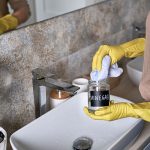
DIY cleaning tips: 8 Surfaces to avoid if you’re cleaning with vinegar
By Zoey Sky
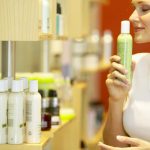
Top 10 hazardous cosmetic products to avoid if you want to protect your family from harsh chemicals
By Zoey Sky
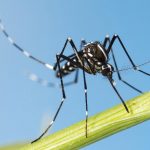
Prepper projects: Make a DIY mosquito trap to protect your family from bites
By Zoey Sky
COPYRIGHT © 2017 NATURAL NEWS INGREDIENTS


